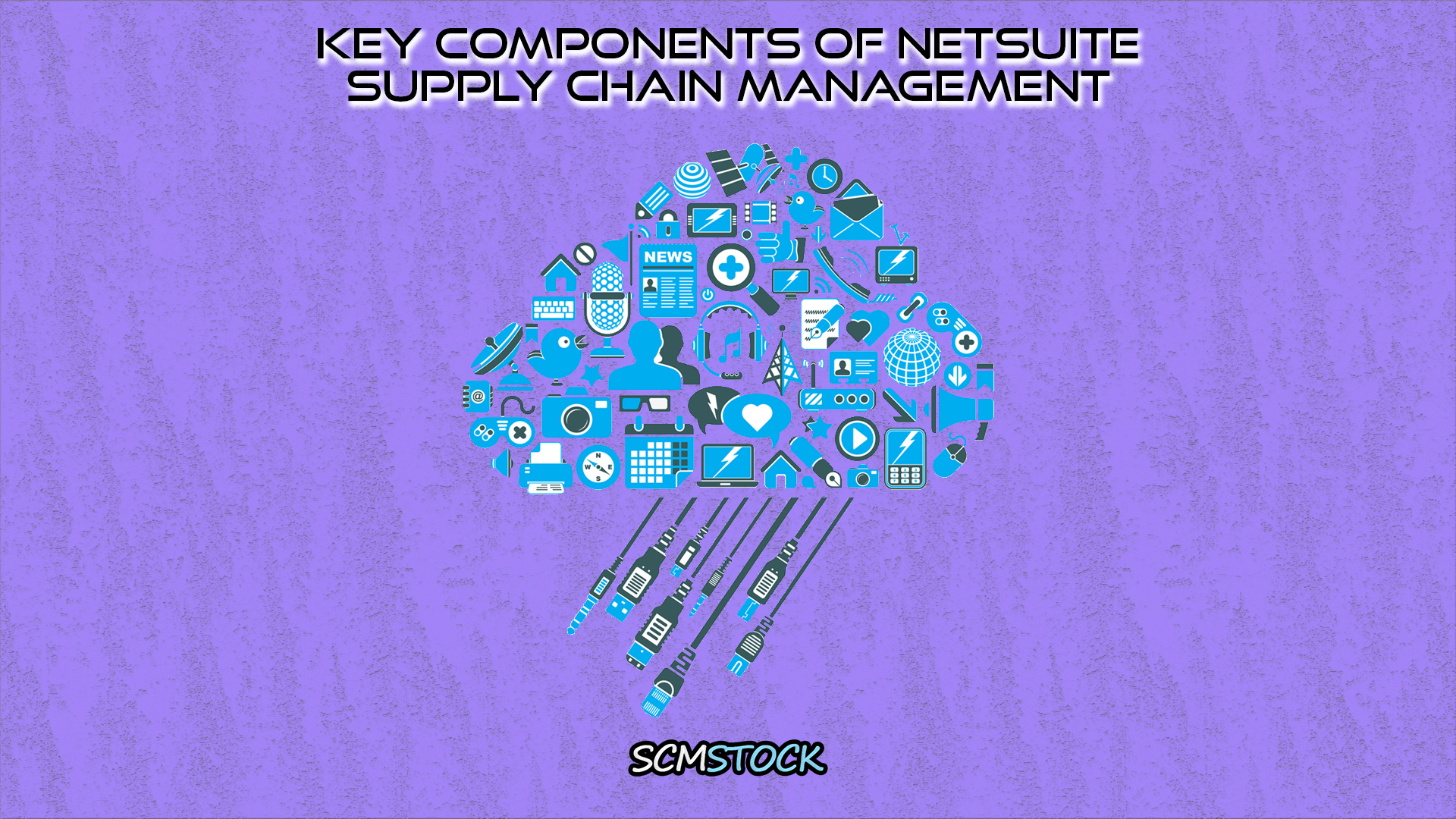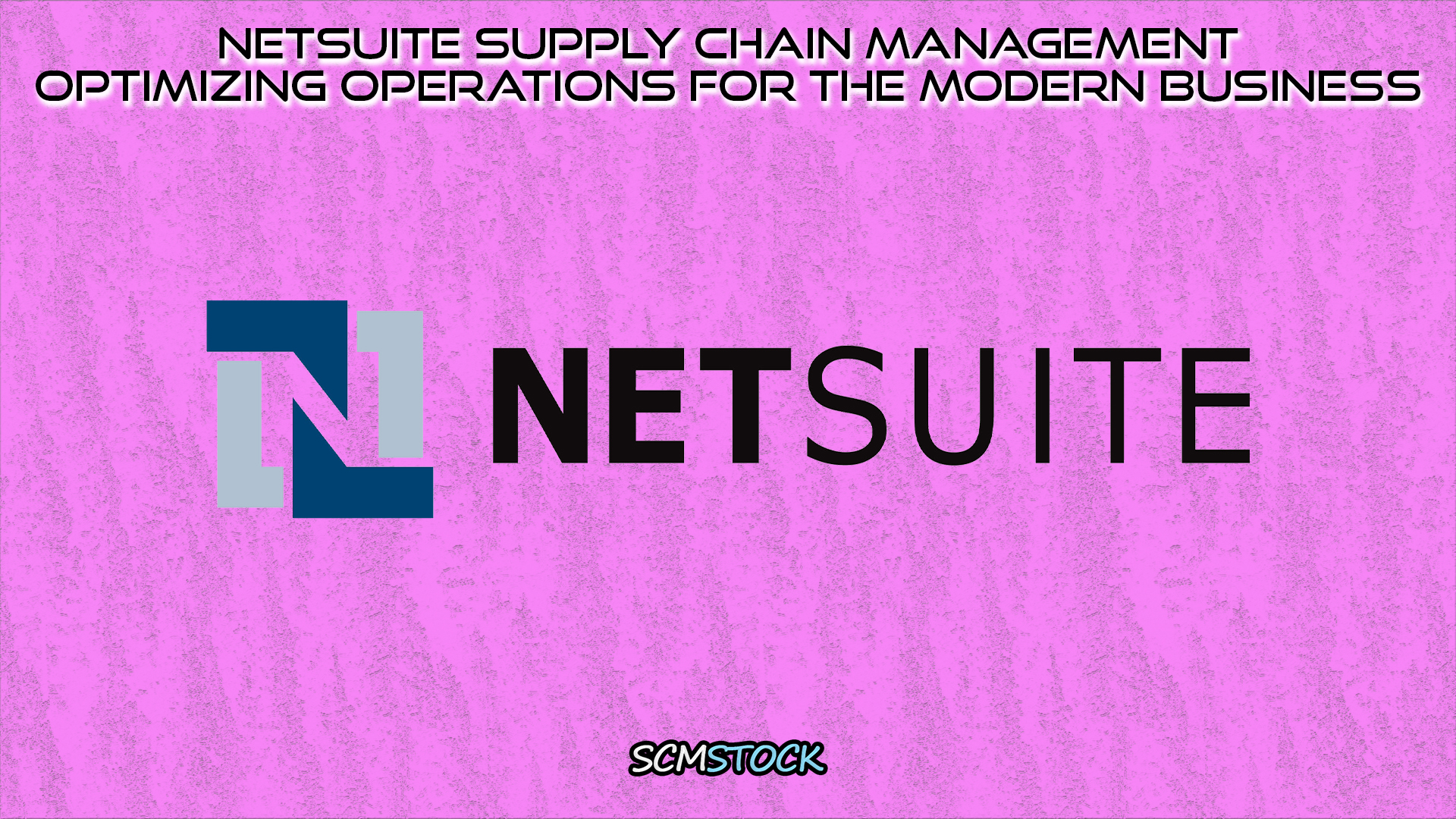In the fast-paced world of supply chain management, where every second counts and every decision can impact the bottom line, having the right tools at your disposal is paramount.
Enter NetSuite Supply Chain Management, a comprehensive solution designed to streamline and optimize your entire supply chain process, from demand planning to final delivery.
NetSuite’s cloud-based platform offers an integrated approach that connects various facets of your supply chain, ensuring smooth operations, improved visibility, and enhanced decision-making capabilities.
Supply chain management has evolved significantly over the years, driven by technological advancements and the increasing complexity of global trade.
Traditional methods of managing supply chains are no longer sufficient in today’s dynamic business environment.
Companies now require systems that can not only handle the basic functions but also provide advanced analytics, real-time data access, and the flexibility to adapt to changing market conditions.
NetSuite Supply Chain Management (SCM) is designed to meet these demands, offering a robust platform that caters to the needs of businesses across various industries.
What is NetSuite Supply Chain Management?
NetSuite Supply Chain Management is a cloud-based solution that provides end-to-end visibility and control over a company’s supply chain processes.
From procurement to production, inventory management to order fulfillment, NetSuite SCM integrates all these functions into a single, unified system.
This integration allows businesses to operate more efficiently, reduce costs, and enhance customer satisfaction.
One of the core features of NetSuite SCM is its ability to provide real-time insights into the supply chain.
This is crucial for making informed decisions that can lead to improved efficiency and profitability. Whether you’re a manufacturer, a distributor, or a retailer, NetSuite SCM offers tools that can help you manage your supply chain more effectively.
Additionally, the system is highly customizable, allowing businesses to tailor it to their specific needs and requirements.
Key Components of NetSuite Supply Chain Management

NetSuite Supply Chain Management is composed of several key components, each playing a critical role in ensuring the smooth operation of the supply chain.
These components include demand planning, inventory management, order management, procurement, manufacturing, and distribution and logistics.
Let’s delve into each of these components to understand how they contribute to the overall efficiency of the supply chain.
1. Demand Planning
Demand planning is the foundation of any successful supply chain management strategy. It involves forecasting customer demand to ensure that products are available when needed, without overproducing or underproducing.
NetSuite SCM enhances demand planning by providing tools for accurate forecasting, integrating sales and operations planning (S&OP), and aligning demand with production capabilities.
This ensures that businesses can meet customer demands while minimizing excess inventory.
2. Inventory Management
Effective inventory management is crucial for maintaining a balance between supply and demand. With NetSuite SCM, businesses can track inventory levels in real-time, reducing the risk of stockouts or overstocking.
The system also supports multi-location inventory management, allowing companies to manage inventory across multiple warehouses and locations.
This feature is particularly useful for businesses with a global footprint, as it provides visibility into inventory levels across the entire supply chain.
3. Order Management
Order management is another critical component of NetSuite SCM. The system streamlines the order-to-cash process, ensuring that orders are fulfilled quickly and accurately.
This not only improves customer satisfaction but also reduces the time it takes to convert orders into cash.
NetSuite SCM also supports complex order scenarios, such as drop shipping and special orders, making it a versatile solution for businesses with diverse needs.
4. Procurement
Procurement is the process of acquiring goods and services from external suppliers.
NetSuite SCM automates procurement processes, reducing the time and effort required to manage supplier relationships and purchase orders.
The system also enhances cost control and compliance by providing visibility into procurement activities and ensuring that purchases are made in accordance with company policies.
5. Manufacturing
For manufacturing businesses, NetSuite SCM offers tools to manage production planning, scheduling, and quality control.
The system supports lean manufacturing practices, helping businesses reduce waste and improve efficiency.
NetSuite SCM also ensures compliance with industry standards and regulations, providing peace of mind for manufacturers in highly regulated industries.
66. Distribution and Logistics
Distribution and logistics are critical for getting products to customers on time. NetSuite SCM optimizes distribution networks, ensuring that products are delivered efficiently and cost-effectively.
The system also provides real-time shipment tracking, giving businesses and customers visibility into the status of deliveries.
Additionally, NetSuite SCM enhances last-mile delivery, ensuring that products reach their final destination in a timely manner.
Demand Planning in NetSuite Supply Chain
Accurate demand planning is essential for any successful supply chain. It ensures that the right products are available at the right time, reducing the risk of stockouts and excess inventory.
NetSuite SCM enhances demand planning by providing advanced forecasting tools that take into account historical data, market trends, and customer behavior.
One of the key features of NetSuite SCM’s demand planning module is its ability to integrate sales and operations planning (S&OP).
This ensures that demand forecasts are aligned with production capabilities, minimizing the risk of overproduction or underproduction.
By integrating S&OP into the demand planning process, NetSuite SCM helps businesses balance supply and demand, improving overall efficiency.
NetSuite SCM also offers tools for scenario planning, allowing businesses to model different demand scenarios and assess their impact on the supply chain.
This enables companies to be more agile and responsive to changes in market conditions, ensuring that they can meet customer demands even in volatile environments.
Inventory Management with NetSuite SCM
Effective inventory management is crucial for maintaining a balance between supply and demand. With NetSuite SCM, businesses can track inventory levels in real-time, reducing the risk of stockouts or overstocking.
The system also supports multi-location inventory management, allowing companies to manage inventory across multiple warehouses and locations.
This feature is particularly useful for businesses with a global footprint, as it provides visibility into inventory levels across the entire supply chain.
NetSuite SCM’s inventory management module also includes tools for inventory optimization, helping businesses determine the optimal inventory levels for each product.
This reduces the risk of carrying excess inventory, which can tie up capital and increase storage costs.
Additionally, NetSuite SCM provides tools for managing inventory replenishment, ensuring that products are restocked in a timely manner to meet customer demand.
One of the key benefits of NetSuite SCM’s inventory management module is its ability to integrate with other supply chain functions, such as demand planning and order management.
This integration ensures that inventory levels are always aligned with demand, reducing the risk of stockouts and improving customer satisfaction.
Order Management in NetSuite
Order management is another critical component of NetSuite SCM. The system streamlines the order-to-cash process, ensuring that orders are fulfilled quickly and accurately.
This not only improves customer satisfaction but also reduces the time it takes to convert orders into cash.
NetSuite SCM also supports complex order scenarios, such as drop shipping and special orders, making it a versatile solution for businesses with diverse needs.
NetSuite SCM’s order management module provides real-time visibility into order status, allowing businesses to track orders from placement to delivery.
This visibility is crucial for managing customer expectations and ensuring that orders are fulfilled on time.
Additionally, NetSuite SCM provides tools for managing order exceptions, such as backorders and cancellations, ensuring that these issues are handled efficiently and effectively.
One of the key benefits of NetSuite SCM’s order management module is its ability to integrate with other supply chain functions, such as inventory management and procurement.
This integration ensures that orders are fulfilled accurately and efficiently, reducing the risk of errors and improving customer satisfaction.
Procurement with NetSuite
Procurement is the process of acquiring goods and services from external suppliers. NetSuite SCM automates procurement processes, reducing the time and effort required to manage supplier relationships and purchase orders.
The system also enhances cost control and compliance by providing visibility into procurement activities and ensuring that purchases are made in accordance with company policies.
NetSuite SCM’s procurement module includes tools for managing supplier relationships, ensuring that businesses can build strong, collaborative relationships with their suppliers.
The system also provides tools for managing purchase orders, ensuring that orders are placed in a timely manner and that deliveries are received on time.
Additionally, NetSuite SCM provides tools for managing supplier performance, ensuring that suppliers meet the company’s quality and delivery standards.
One of the key benefits of NetSuite SCM’s procurement module is its ability to integrate with other supply chain functions, such as inventory management and order management.
This integration ensures that procurement activities are aligned with the overall supply chain strategy, reducing the risk of stockouts and improving overall efficiency.
Manufacturing and NetSuite Supply Chain
For manufacturing businesses, NetSuite SCM offers tools to manage production planning, scheduling, and quality control.
The system supports lean manufacturing practices, helping businesses reduce waste and improve efficiency.
NetSuite SCM also ensures compliance with industry standards and regulations, providing peace of mind for manufacturers in highly regulated industries.
NetSuite SCM’s manufacturing module includes tools for managing production schedules, ensuring that production is aligned with demand and that products are produced in a timely manner.
The system also provides tools for managing production resources, such as labor and materials, ensuring that these resources are used efficiently.
One of the key benefits of NetSuite SCM’s manufacturing module is its ability to integrate with other supply chain functions, such as demand planning and inventory management.
This integration ensures that production is aligned with demand, reducing the risk of overproduction or underproduction and improving overall efficiency.
Distribution and Logistics in NetSuite
Distribution and logistics are critical for getting products to customers on time. NetSuite SCM optimizes distribution networks, ensuring that products are delivered efficiently and cost-effectively.
The system also provides real-time shipment tracking, giving businesses and customers visibility into the status of deliveries.
Additionally, NetSuite SCM enhances last-mile delivery, ensuring that products reach their final destination in a timely manner.
NetSuite SCM’s distribution and logistics module includes tools for managing transportation and warehousing, ensuring that products are stored and shipped efficiently.
The system also provides tools for managing distribution networks, ensuring that products are delivered to the right location at the right time.
One of the key benefits of NetSuite SCM’s distribution and logistics module is its ability to integrate with other supply chain functions, such as inventory management and order management.
This integration ensures that distribution activities are aligned with the overall supply chain strategy, reducing the risk of delays and improving overall efficiency.
Conclusion
NetSuite Supply Chain Management is a powerful tool that can help businesses optimize their supply chain operations, improve efficiency, and enhance customer satisfaction.
With its comprehensive suite of features, real-time insights, and advanced analytics, NetSuite SCM is a must-have for businesses looking to stay competitive in today’s fast-paced market.
For businesses of all sizes, from small enterprises to large corporations, NetSuite SCM offers scalable solutions that can be tailored to meet specific needs.
By integrating all aspects of the supply chain into a single platform, NetSuite SCM helps businesses reduce costs, improve collaboration, and make data-driven decisions that drive growth and profitability.
As the future of supply chain management continues to evolve, NetSuite SCM is well-positioned to help businesses navigate the challenges and opportunities ahead.
With its cutting-edge technology and forward-thinking approach, NetSuite SCM is set to be a key player in the next generation of supply chain management.
